Current Section: model
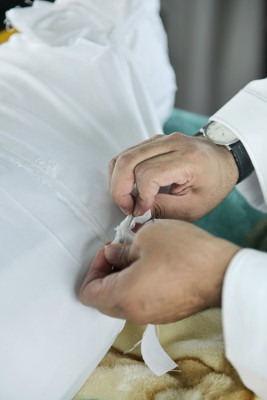
Lesson Washing & Shrouding the Deceased
What is recommended to do when a Muslim passes away
If death is confirmed and the soul has left the body, it is recommended to do a number of things
When the Prophet ﷺ came to Abu Salamah and his eyes were open, he closed them and said: «If you come upon your dead, close their eyes» (Ibn Majah 1455).
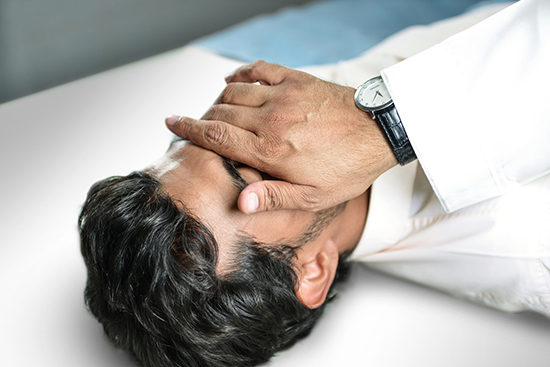
2. Displaying Fortitude and Self-Control
And not to raise one's voice by bawling and wailing, and to console family and relatives of the deceased. The Prophet ﷺ instructed one of his daughters -upon the death of her newborn- to be patient and seek reward from Allah (Bukhari 1284, Muslim 923).
This is what the Prophet ﷺ did when Abu Salamah -one of the honorable companions- passed away, saying: «When the soul is taken, the sight follows it.» Then he said: «O Allah, forgive Abu Salamah, raise his rank among those who are rightly guided, and grant him a successor from his descendants who remain behind. Forgive us and him, O Lord of the Worlds, make his grave spacious and give him light in it» (Muslim 920).
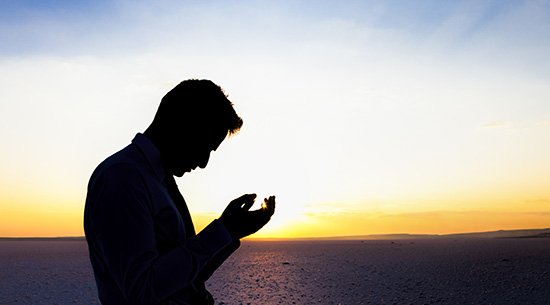
The Prophet ﷺ said: «Hasten with the funeral, for if they (i.e., the deceased) were righteous, you are doing good for them, but if they were otherwise, it is an evil of which you are ridding yourselves.» (Al-Bukhari 1315, Muslim 944)

5. Helping the Family of the Deceased
Assisting the family of the deceased with some of their burdens. The Prophet ﷺ instructed that food be prepared for the family of his paternal cousin Ja'far bin Abi Talib (may Allah be pleased with him) when he was killed, saying: «Make food for the family of Ja'far for they are preoccupied with a matter that befell them.» (Abu Dawud 3132, At-Tirmidhi 998 (authenticated), Ibn Majah 1610).
It is an obligation to wash the body of the deceased before shrouding and burying them. One of the family members, close relatives, or other Muslims do this. The Prophet's ﷺ body was washed when he passed away, even though he was pure and purifying.

In washing the body of the deceased, it is sufficient for water to wash the entire body with water and rid it of any impurity. Care should be taken to cover the private parts when washing. Moreover, it is recommended that the following matters be taken into account:
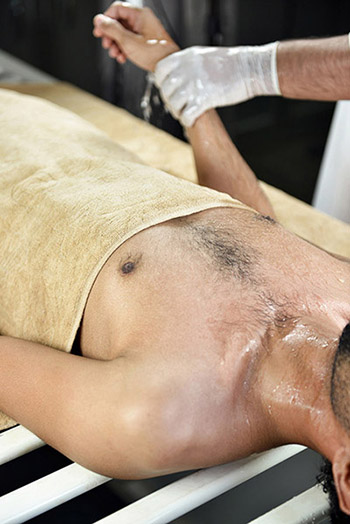
1. To cover the body between the navel and the knees, after removing all clothing from it.
2. For the person washing the body to put a glove or a cloth on his hand while washing the private parts of the deceased.
3. To begin by removing any harmful objects or impurities from the body of the deceased
4. Then the parts of ablution are washed in the well-known order.
5. Then he washes the head and the rest of the body. It is recommended to wash the body with Sidr (i.e., lote tree leaves), or soap, then rinse it off with water after.
6. It is recommended to wash the right side of the body before the left.
7. It is recommended to wash the body thrice or more if needed
This is as the Prophet ﷺ said to the women who were washing his daughter Zainab (may Allah be pleased with her): «Wash her thrice or five times or more if you need to.» (Al-Bukhari 1253, Muslim 939).
8. A piece of cloth, cotton, or the like can be placed
to plug the cavities in the private areas, ears, nose, and mouth. This is to prevent any impurities or blood from exiting from the body.
During the body's washing and after it, the Messenger of Allah ﷺ instructed the women who were washing his daughter Zainab to put camphor (a kind of perfume) after they finished washing the body (Al-Bukhari 1253, Muslim 939).
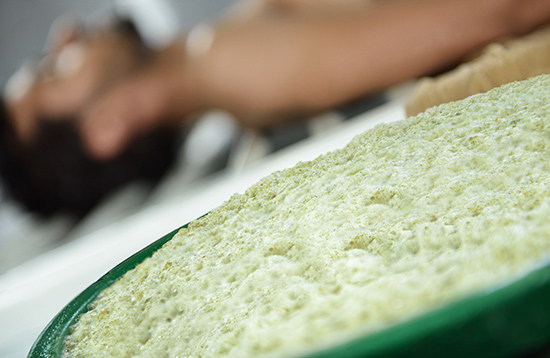
Who performs the funeral washing?
Aishah (may Allah be pleased with her) said: «If I had known then what I know now, no one would have washed the Prophet ﷺ other than his wives» (Abu Dawud 3141, Ibn Majah 1464).
Shrouding the deceased with a covering are from the rights due upon them from their family and the Muslim community, and it is considered a communal obligation. This is because the Prophet ﷺ said: “Wear from your clothes white, for they are among the best of your clothes, and shroud your deceased in them” (Abu Dawud 3878).

The expenses of the shrouding are deducted from the inheritance if they have left money. If the deceased has not left behind any money, then the costs of the shroud are obligatory on those who are required to spend on them if they were alive, such as the father, grandfather, son, and grandson. If it is not possible, then it is the responsibility of the wealthy within the Muslim community.
What is considered sufficient for the obligatory shroud is that which covers the body of the deceased of clean clothes, whether the deceased be a man or a woman.


